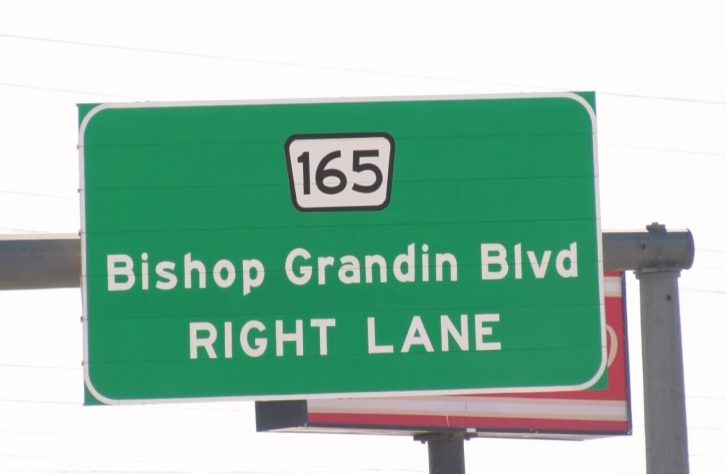Winnipeg is close to saying goodbye to Bishop Grandin. Soon, the streets, and anything else that bears his name, will be erased from Manitoba’s history.
Before that step is taken in historical revisionism city councillors might at least pay respects to the man who was once considered to be a founding father of this Keystone Province.
Who was Bishop Grandin?
Vital-Justin Grandin was a Roman Catholic priest who played a major role in the transformation of what was largely a thinly populated wilderness into the vibrant province that we inhabit today.
He was an unlikely hero. Poor health and a speech impediment hindered his career, and he ended up in our cold northwest, where he developed an immediate and long-lasting affinity for indigenous people. In fact he adopted two Indigenous orphans, and during that time he formulated the idea that motivated him for the rest of his life. Simply put, he saw no reason why priests had to be white men. He enthusiastically promoted education, in large part, so that Indigenous men could become priests, and societal leaders.
It needs to be remembered that Roman Catholicism was extremely important in early Manitoba life. And when Grandin arrived in what would become the “postage stamp province” the area was largely Roman Catholic. The dominant Indigenous group, the Ojibway, had emigrated from the Great Lakes area around the same time as the Selkirk Settlers, and had displaced the relatively few Assiniboine who had hunted in the area. The rich Indigenous, Half-breed and Métis cultures flourished. The Protestant “Orange” had yet to arrive.
It was in this fascinating Métis/Indigenous/Selkirk Settler/Half-breed tapestry that Grandin unleashed his amazing energy. Education and Roman Catholicism were his twin passions. He was convinced that education was absolutely necessary if Indigenous and Métis people were to succeed. Edward Cunningham, the first Métis priest in the northwest, was Grandin’s crowning success. Until his poor health stopped him for good, Grandin built, and kept building the structure that became modern Manitoba.
As for residential schools, apparently the reason Grandin’s name is to be expunged permanently from Canadian history books is because he supported residential schools for Indigenous children. That’s the way priests and other leaders were educated at the time. Boarding schools did that. So, he is guilty as charged. But in his defence, Grandin had absolutely no idea that school children would be subjected to abuse 50 or 100 years after he was gone. And Grandin always believed that Indigenous parents should decide whether or not to send their child to a residential school. During Grandin’s time attendance at residential schools was completely up to the Indigenous parents. Compulsory school attendance was not introduced until long after his death.
So, there’s that.
And it is absolutely true that Grandin and Louis Riel despised one another. Grandin thought Riel was a madman, and he was not alone in this assessment.
But, if Grandin’s name is to be erased from history, let’s remember his full name: “Vital-Justin Grandin”. That’s right, St. Vital was named for him. So, to be consistent, St. Vital will have to be renamed as well.
And what about Tache, Des Meurons, Dorchester, Lagimodiere, and a few hundred other historical figures. If we are to judge yesterday’s leaders by today’s standards every one of those names will be problematic. Every man, woman, and child who lived a hundred or more years ago is guilty of thinking and acting like a person of their time, and not as a person of our enlightened time.
We might even have to take a look at names like Chief Peguis. Many tribes practiced polygamy, the buying and selling of wives, slavery, ritual torture, and bloody warfare. If we judge yesterday’s leaders, like Grandin, by the standards of today, should we not judge Indigenous leaders, like Peguis, by the same standards?
The answer is to recognize that Grandin and Peguis were both good men – but, men of their time.
Manitoba has an honourable history. Grandin and Peguis both played an honourable part.
Reconciliation is a worthy goal. But it won’t be achieved by rewriting history.
Brian Giesbrecht, retired judge, is a Senior Fellow at the Frontier Centre for Public Policy



